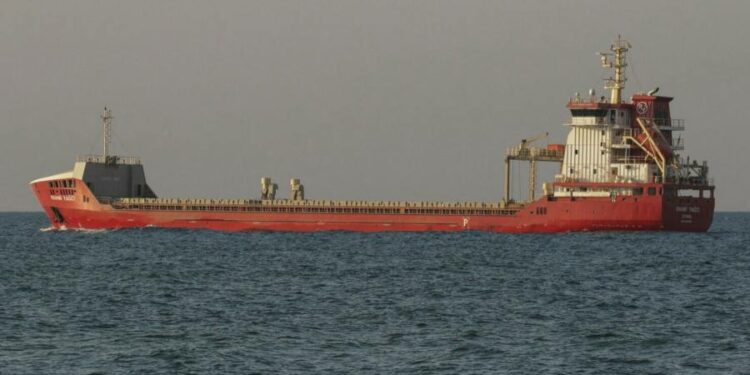Countries in the Middle East and North Africa depend on wheat from Ukraine and Russia. The latter has only recently allowed wheat exports to resume. This week, the combatants agreed a safety zone of 10 nautical miles to protect neutral cargo ships carrying grains from the latter’s ports on the Black Sea.
This should matter to grain markets. Ukrainian wheat accounted for a tenth of world wheat in 2018-20. Its exports have collapsed by 40 per cent year on year. This is the main cause of the world’s wheat deficit this year of about 13.5mn tonnes, notes Saxo Bank.
The agreement to permit exports may not translate into a big wheat supply increase. But there are signs it could. Russia-friendly Turkey, itself an importer of Ukrainian and Russian grain, helped broker the July 22 export compromise and subsequent safe passage routes. Marine insurers stand ready to underwrite these cargoes, says Chris McGill at Lloyd’s syndicate Ascot. It has doubled its typical cover to $50mn for a Suezmax size vessel that would fit into these ports but has yet to underwrite a vessel.
Traders have other concerns. Wheat prices have held firm and even bounced 5 per cent over the past couple of weeks in Paris and Chicago. The price in the Midwest city is at $794 per bushel, close to its level just before Russia’s full-scale invasion of Ukraine.
You would imagine wheat prices should dip on the promise of increased supply. But it is early days for Ukrainian exports. Doubts exist about how quickly any new crop can be harvested and stored when 13 per cent of last year’s crop remains in silos, according to the International Food Policy Research Institute.
Concerns will persist until there is a record of safe shipments. Even if both sides hold off on hostilities, these routes have mines nearby which could drift. The 16 ships caught in Ukrainian ports may well need to be checked — in what is known as reactivation surveys — to pass muster for safe travel. Higher insurance rates will not help if, say, Russia does not allow unapproved tugs to aid a bulk carrier with engine trouble.
Finally, a heatwave in much of the northern hemisphere threatens all crops including wheat as harvest time begins. The US Department of Agriculture will update the market on Friday about the state of worldwide supply. Given the tensions in eastern Europe, expect wheat prices to hold firm.
The Lex team is interested in hearing more from readers. Please tell us what you think of the Russia-Ukraine grain export agreement in the comments section below.











